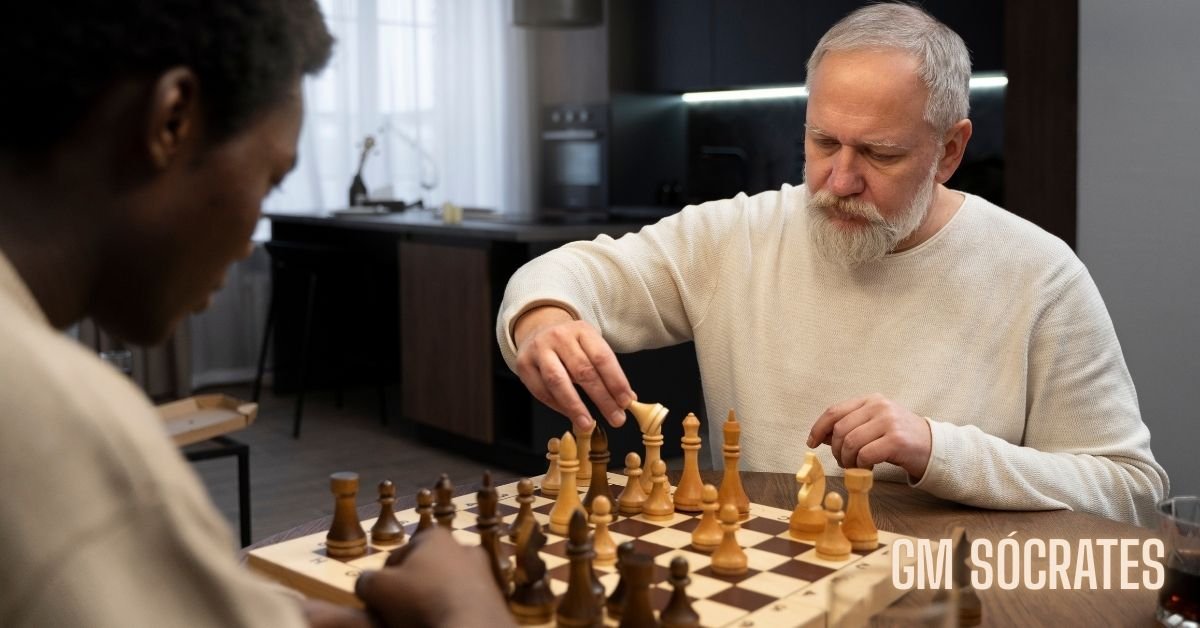Contents
- 1 Introduction
- 2 Early Life and Passion for Chess
- 3 Rise in the Brazilian Chess Scene
- 4 International Recognition and Achievements
- 5 Impact on Brazilian Chess Culture
- 6 Mentorship and Development Programs
- 7 Legacy in Modern Brazilian Chess
- 8 Global Influence and Recognition
- 9 Fostering a New Generation of Players
- 10 Conclusion
- 11 Frequently Asked Questions
Introduction
Brazil has long been known for its rich cultural heritage and sporting achievements, from football to capoeira. Yet, in the world of chess, one figure stands out as a true pioneer—GM Sócrates. His contributions to the Brazilian chess scene not only elevated the national standard of play but also inspired generations of players to pursue the game with passion and dedication. Understanding his influence provides a window into the growth of chess in Brazil and the emergence of a vibrant chess culture that continues to thrive today.
Early Life and Passion for Chess
GM Sócrates developed an interest in chess at a young age, drawn by the intellectual challenge and strategic depth the game offered. Growing up in Brazil, he faced limited access to international-level coaching and tournaments. Despite these challenges, he dedicated himself to mastering the game, studying classic chess literature, and competing in local competitions. This early dedication laid the foundation for his later success and helped cultivate a disciplined approach to learning and improvement that would influence other Brazilian players.
Rise in the Brazilian Chess Scene
As GM Sócrates honed his skills, he quickly became a dominant figure in the national chess scene. He participated in numerous tournaments, steadily gaining recognition for his strategic insight and creative play. His rise demonstrated that Brazilian players could compete at a high level, even in a global environment dominated by traditionally strong chess nations. Through his victories and presence in national competitions, GM Sócrates inspired a new generation of players to take chess seriously, elevating the overall competitive atmosphere in Brazil.
You Might Also Like: Popular NPCs in Gender-Reversed Gaming Worlds
International Recognition and Achievements
Sócrates’s success was not confined to national boundaries. He represented Brazil in several international tournaments, where his performance earned him the Grandmaster title. This recognition brought attention to Brazilian chess on the global stage and helped establish the country as a serious contender in international competitions. His achievements provided a model for aspiring players, showing that talent combined with perseverance could overcome geographical and resource limitations.
Impact on Brazilian Chess Culture
Beyond his personal achievements, Sócrates played a key role in shaping the chess culture in Brazil. He was involved in coaching, mentoring, and organizing events that encouraged wider participation in the game. Through his efforts, chess became more accessible and appealing to young players, fostering a community that values strategic thinking and intellectual growth. His influence extended beyond the chessboard, emphasizing sportsmanship, discipline, and the pursuit of excellence.
Mentorship and Development Programs
Recognizing the importance of nurturing young talent, Sócrates established mentorship programs aimed at developing future Brazilian chess champions. These initiatives focused on providing structured training, access to resources, and exposure to competitive play. Many of his protégés went on to achieve national and international recognition, further cementing his legacy as a foundational figure in Brazilian chess development. His mentorship emphasized not only technical skill but also the psychological resilience required to succeed in competitive environments.
Legacy in Modern Brazilian Chess
Today, Sócrates’s influence is evident in the achievements of contemporary Brazilian chess players. The professional structures, training programs, and national competitions that he helped develop continue to support emerging talent. His legacy serves as a reminder that individual dedication can transform a national sporting culture, and that visionary leadership can leave a lasting imprint on an entire community. Brazilian chess continues to grow, with more players participating in international tournaments and contributing to a vibrant chess scene inspired by his pioneering work.
Global Influence and Recognition
While his primary impact was on Brazilian chess, Sócrates’s approach and philosophy have resonated with players around the world. His games are studied for their creativity, strategic depth, and innovative tactics. International players and coaches often reference his techniques and match strategies, highlighting how a single dedicated player from a non-traditional chess nation can influence global chess thinking. His recognition illustrates the universal appeal of chess as a bridge between cultures and a platform for intellectual excellence.
Fostering a New Generation of Players
The structures Sócrates established continue to play a crucial role in fostering new talent. Chess schools, training academies, and youth tournaments in Brazil often trace their methods and inspiration back to his work. By prioritizing accessibility, education, and mentorship, he ensured that chess would remain a viable and appealing pursuit for future generations. His legacy reinforces the idea that developing young players is not just about producing champions but about cultivating a lifelong appreciation for strategy, critical thinking, and problem-solving.
You Might Also Like: Amaangameworld
Conclusion
GM Sócrates stands as a transformative figure in Brazilian chess. His journey from a passionate young player to an internationally recognized Grandmaster exemplifies dedication, strategic insight, and a commitment to community development. By fostering talent, enhancing the national chess culture, and inspiring players worldwide, he has left a lasting legacy that continues to shape the game in Brazil. His story is a testament to how vision, perseverance, and leadership can elevate an entire sporting community and create opportunities for generations to come.
Frequently Asked Questions
What made GM Sócrates unique in Brazilian chess?
GM Sócrates was unique for combining personal skill, strategic innovation, and a commitment to developing future talent, which set him apart as both a player and mentor.
How did he contribute to chess in Brazil?
He contributed through mentorship programs, coaching initiatives, organizing tournaments, and inspiring young players, significantly raising the standard of chess in Brazil.
Which international achievements did he have?
He represented Brazil in multiple international tournaments, earning the Grandmaster title and gaining recognition for his creative and strategic play.
How does his legacy influence modern players?
Modern Brazilian players benefit from the programs and culture he established, which continue to provide resources, mentorship, and inspiration for competitive and recreational players alike.




